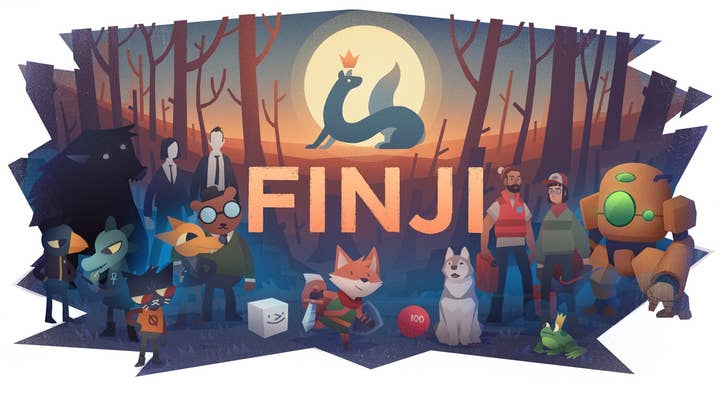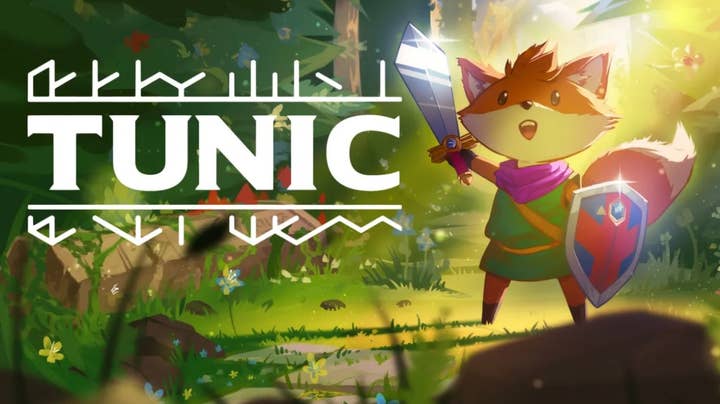Finji CEO: Subscriptions are simultaneously "awesome and terrifying"
Bekah Saltsman shares her concerns and hopes around how subscription services could impact indie sustainability
The industry goes in cycles for indies, Finji CEO Bekah Saltsman tells us in a discussion at last October's Megamigs conference.
"There are boom cycles where there's lots of money out and about, then it contracts again, and then it's going to boom out again," she says. "And it's been doing this forever, because it goes on hardware cycles and everything else."
Right now, she thinks the cycle is starting a contraction and indies may have a harder time finding funding, in large part because we're now far enough removed from the new hardware launches that typically mark the boom periods. But she adds that "really weird things are going to start happening" because of subscription services like Xbox Game Pass or the premium tiers of PlayStation Plus.

"Because of the constriction and consolidation of the industry over the past two years and how a lot of companies are just owned by the subscription services, my concern is that because the libraries are so big and the companies are so prolific with huge user bases, that they won't need us," Saltsman says.
While Saltsman is confident that Finji can get by thanks to its established reputation – games like Tunic, Night in the Woods, and Chicory are among its critical and commercial successes – and the type of games it produces, she is less confident about the situation for indies in general.
"Will the budgets be enough with the higher cost of making games to be able to allow indies to keep making cool stuff," she asks. "Because if we turn a buying population into a subscription population, that means we have to rely on subscription fees and buyouts. And in general, subscription buyouts don't pay for that many years of a team's development, unless your team is very small."
She adds, "Subscriptions are both awesome and terrifying at the same time, and it could go either way. And I worry most for the smaller indie teams who maybe don't have an early foothold as creators, that they may not have the space and the money to make more than one game."
She is particularly concerned about what sort of value the subscription service platform holders will place on indie titles.
"If your service has the majority of people just play one game on it and subscriptions do better with live services, would they be able to justify a reasonable budget for this other project that would have a fraction of a fraction of a fraction of players compared to something doing a huge portion of numbers on the service?
We can't ignore the fact that these are huge companies run by lots of people looking at spreadsheets
"That's a legit math question because you don't know how it's going to fall. At that point, you're almost deciding who's going to be on the service and who's going to be allowed to keep making games based on value or artistic creative direction or something, rather than the monetary value of that project."
Saltsman says most of the people making the decisions about which games to pick up for these subscription services are "just game fans" and look for more than the bottom line contribution, but worries that may be a temporary situation.
"We can't ignore the fact that these are huge companies run by lots of people looking at spreadsheets," she says, "And I'm always concerned about [what people do] many levels up staring at spreadsheets, and what it means for teams my size or even smaller than me, because we don't do the numbers that the big teams do. We just don't.
"Even Tunic, which has done crazy numbers worldwide. We don't do numbers that compete."

Saltsman obviously isn't entirely averse to subscription services. After all, Finji has put Chicory in PlayStation Plus, three games including Tunic in Game Pass, and had Overland in Apple Arcade at that service's launch.
She can justify the inclusions in a number of different ways. For one thing, putting games in any such service right now increases awareness of it and gets more people playing and streaming it. That could hurt you if it cost a developer sales because prospective purchasers already had the service and opted to try it that way instead of pay up front for a copy.
However, she notes that it also increases awareness among people who don't subscribe to the service or don't own that specific platform, simply because their friends and favorite influencers are talking about it.
On top of that, Saltsman points out that all of these subscription service deals have terms on them, and when games leave the service there's often a prompt to get people to convert to full purchases.
"If game designs constrict too much and you only appeal to the majority, you're missing out on so much in our art form"
While Finji has about as much experience as any indie with games in subscription services, Saltsman says there's no widely applicable rule of thumb yet for what works and what doesn't, or what a developer should charge for putting a game into any given service.
"It's a different answer for each type of game that I have, depending on the platform it's on, the type of game it is, or the audience that's on a particular platform," she says.
Saltsman says her biggest hope is just that the size of the buyouts subscription services offer for games keeps pace with how expensive games are to make.
"This is obviously my very humble opinion, but as long as the buyouts allow the creators I (in a lot of ways) admire most in the industry to just keep making stuff in a way that is sustainable, I'm all about them," she says.
"All I want is a way for people to play more weird, cool games, because if game designs constrict too much and you only appeal to the majority, you're missing out on so much in our art form. My only wish is please just keep paying for the work that the teams do in a way that doesn't hurt them. Pay them a decent salary built into these buyouts."









